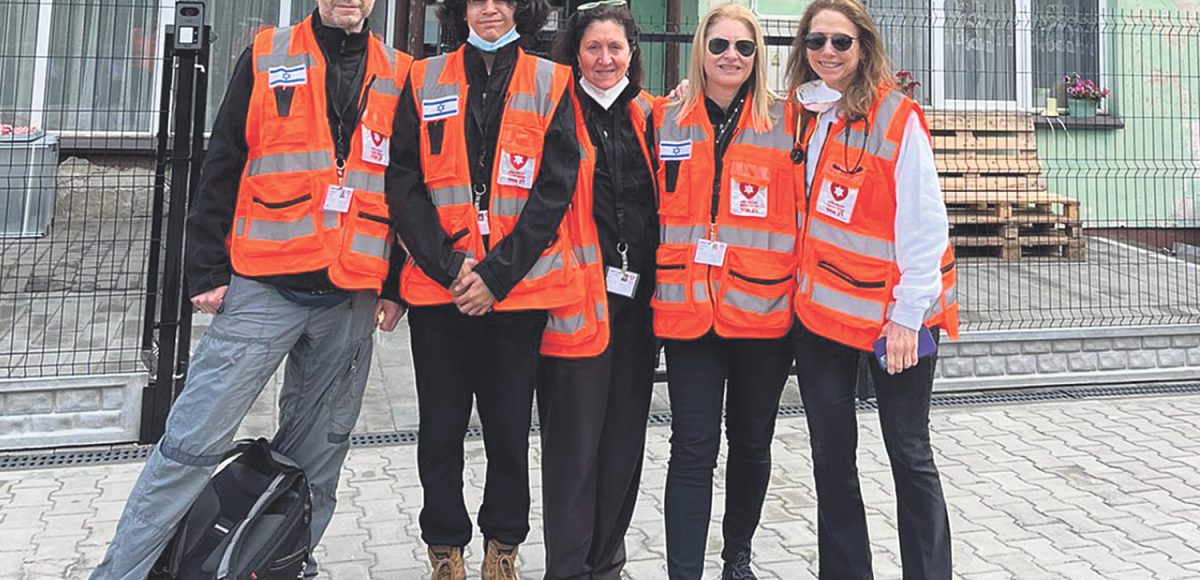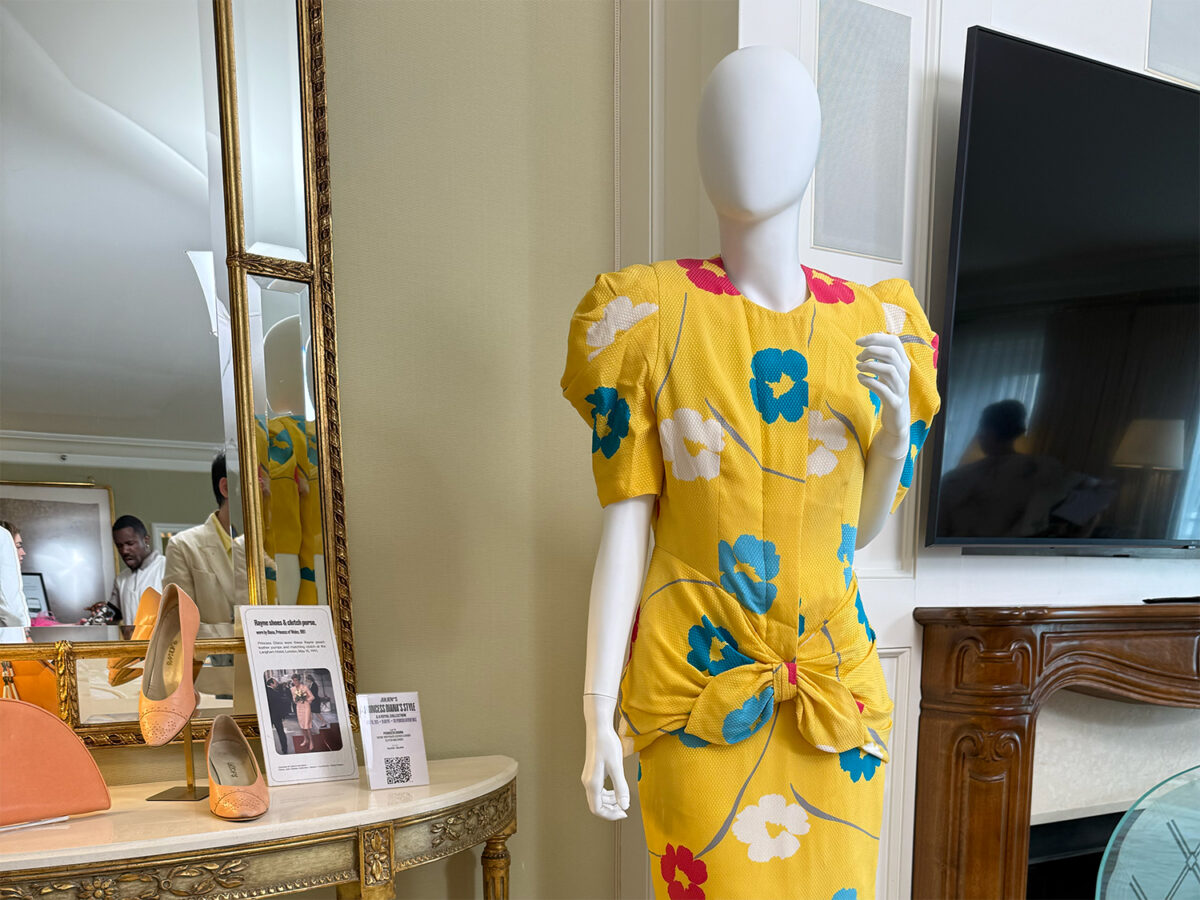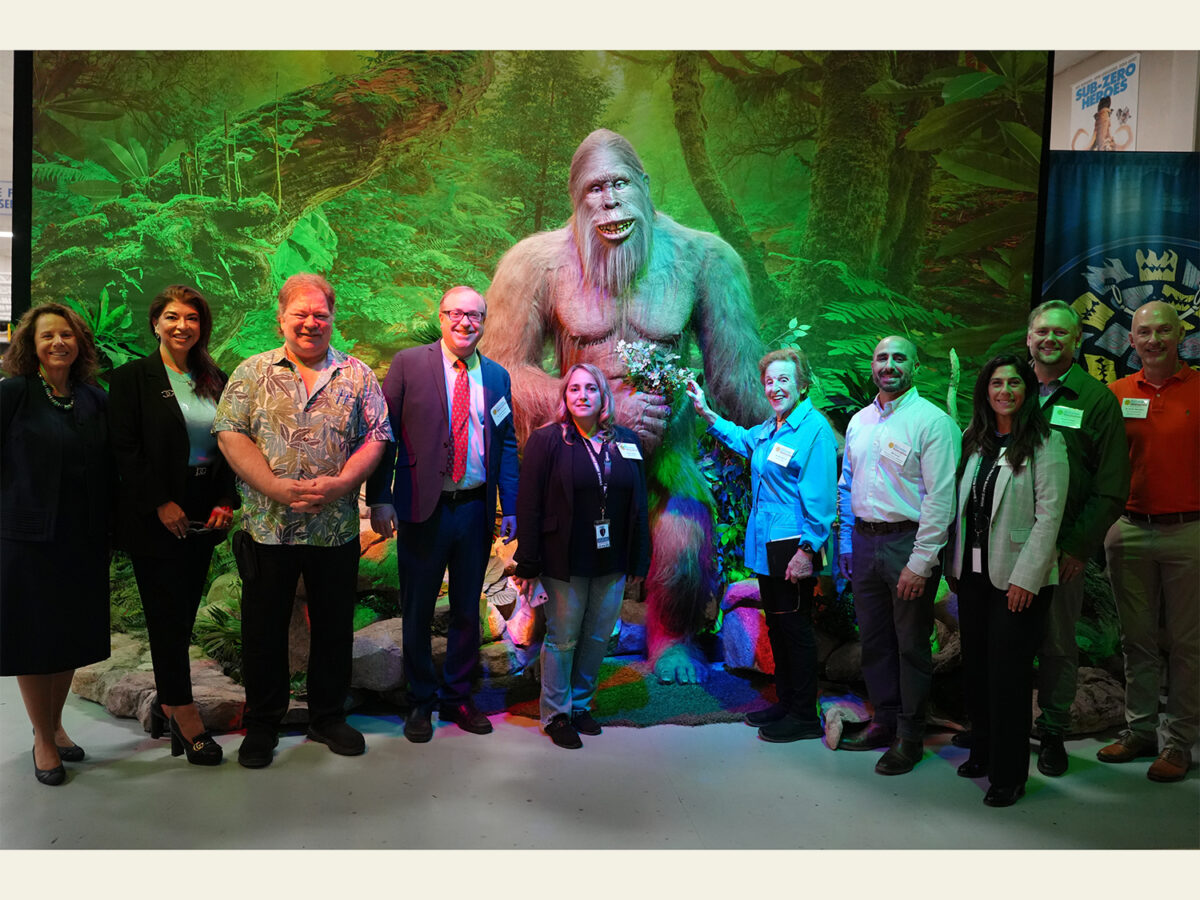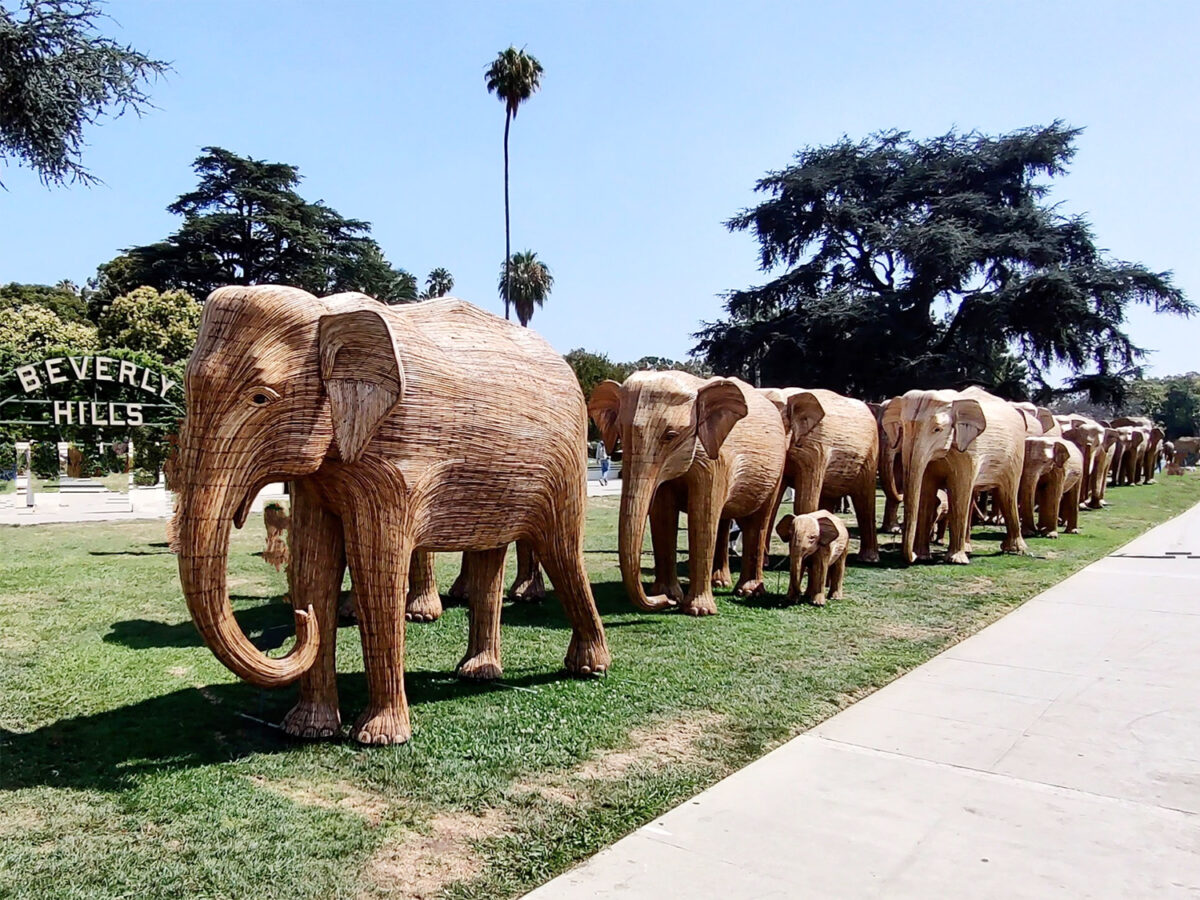When images first surfaced of the Russian invasion of Ukraine earlier this year, Debra Luftman knew she needed to do something. The Beverly Hills dermatologist began to make calls, trying to find out how to help. More than anything else, it was the sight of brave refugees fleeing their homes that inspired her. Luftman’s own grandparents had fled Eastern Europe during the horrors of World War II.
“I knew I wanted to get involved, I just didn’t know how,” Luftman told the Courier.
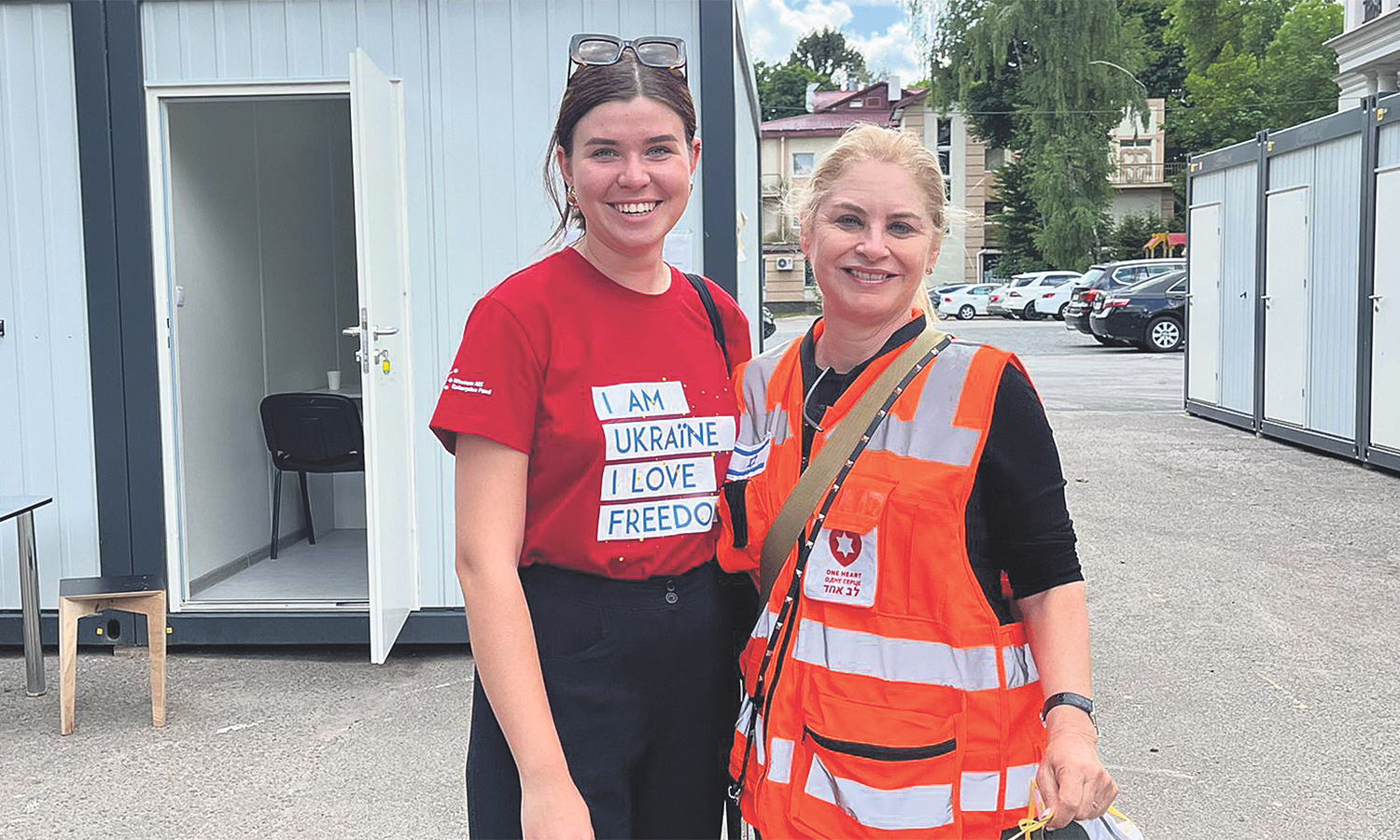
She posted on Facebook and reached out to contacts at Hadassah in search of a way to volunteer in a meaningful way. Eventually, a friend of a friend put her in touch with Dr. Paula Rackoff, a New York rheumatologist with a similar mindset. Rackoff had connected with a small crisis relief group in Israel called Lev Echad or One Heart.
Founded in 2005 by a then-18-year-old student, One Heart’s original mission was to help Israelis displaced by dismantled
settlements. The organization jumped in to help Ukraine early on. One Heart used its expertise to set up leadership programs in Ukraine and had solid infrastructure on the ground when the escalation began in February.
Speaking from Israel, founder and CEO of One Heart Tomer Dror told the Courier, “This is the first time we acted abroad. We look at this war as a global war between the Western world and the world of dictators. In that sense, Ukraine is fighting our war, and we have to help them.”
One Heart recruited Israeli citizens from various fields who wanted to help in Ukraine refugee centers. It had never taken Americans until Rackoff contacted them.
After a Zoom call with One Heart, Luftman was sold. She decided to join Rackoff’s group on a trip to help Ukrainian refugees in early June of this year.
It was a week that changed her life.
Luftman left Los Angeles to meet the rest of the team, consisting of Rackoff and another husband-and-wife pair of physicians, plus their son. The group traveled first to Poland, carrying large duffle bags filled with medications donated by the NYU School of Medicine. Upon arrival, they strapped the duffle bags atop a small car and squeezed in together for an eight-hour drive to the Polish border town of Przemy?l.
The town’s somber history was not lost on the group. During World War II, Jewish refugees gathered there, only to be sent eventually to concentration camps.
From Przemy?l, the doctors traveled to Ar?amów, where they met up with representatives from One Heart. Bright orange vests awaited them, emblazoned with the words “Medical Doctor” written in English and Hebrew. The vests also bore an Israeli flag, and a large heart with the Star of David.
Their hosts from One Heart – three 24-year-old Israelis – gave assurances that the Star of David was now a welcomed symbol in a country where millions of Jews had perished.
Luftman soon observed the power of the symbol for herself. Refugees greeted them with hugs, an acknowledgement of the fact that so many relief agencies in the area are Jewish.
Nearly 5 million refugees from Ukraine have crossed into Poland since the Russian invasion in early 2022. The great majority are women and children – the men stayed back to fight –who fled with the few possessions they could carry.
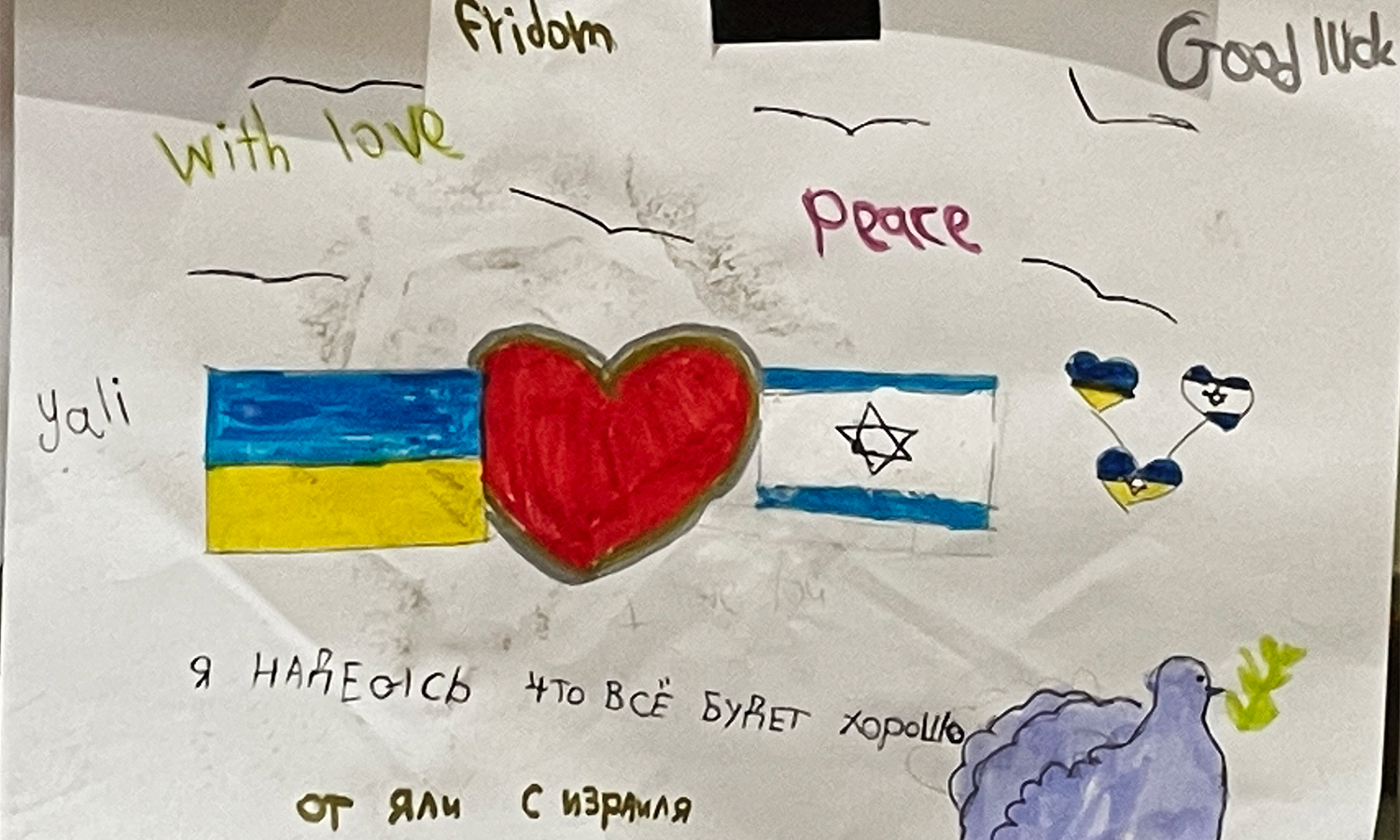
In Poland, Luftman and her group encountered refugees housed in all types of accommodations. None of them were comfortable. Some, essentially converted retail warehouses, even brought concerns about sex trafficking.
“There is no way for the young people and children to have as much structure as they did at home. This is going to be their lost generation. That is another horrible side effect of this war,” said Luftman.
Shortly after their arrival, One Heart informed them that Lviv, the largest city in Western Ukraine, was safe and the group was needed there. During the four-hour drive across the border, Luftman was struck by the beauty of the country and patriotism of its people.
“The love of Ukraine by its citizens was evident everywhere,” she recalled. “Flags were draped over buildings; people were wearing its blue and yellow colors on their clothing.”
“Lviv,” said Luftman, “looks like a typical European city. You see cobblestone streets, an opera house.”
The group headed to a refugee center in the middle of a university.
“Imagine UCLA, with beautiful gardens. They had set up modular units for families of four, all women and children,” said Luftman.
It wasn’t long before she realized that human needs are remarkably similar all over the world. Another surprise: Her specialty proved the most in-demand.
“I saw the most patients, which was kind of interesting. People were so stressed out and stress shows on the skin,” said Luftman.
To communicate, Luftman and the others used Google translate on their phones. It enabled them to not only speak to the patients, but to translate prescriptions and names of medications.
Luftman treated a chemistry professor whose face was bright red from a rosacea flare up. A young woman came to her whose psoriasis had gone from a few scaly spots on her scalp to most of her body. Yet another young man came to her with severe acne.
Some of the refugees simply needed a break from those circumstances.
“One facilitator brought me this woman who was so stressed out living with her mother and two children in a little hut. Her hair was falling out and she said she couldn’t take it anymore. I took her outside and said, ‘Look how beautiful this garden is. Think about the trees that have been there over 100 years. Think about that as you walk around, even if only for 10 minutes.'”
Other physicians working with the refugees also employed whatever strategies they could to diffuse tension.
“One of the other physicians was from Russia, and she did a lot of meditation circles. We tried to use all of our tools, not just medical ones,” said Luftman.
She also realized that the patients she was seeing could easily be from her Beverly Hills practice.
“At the height of COVID, I saw all kinds of stress-induced skin disorders. It brought home the fact that we all share the same responses, even though we’re half a world away. I never thought that I could be doing Botox and fillers one week and the next, find myself in a war-torn country taking care of kids. But that is what happened,” said Luftman.
Her group ended the trip with a visit to Auschwitz, where, Luftman said, she could feel “ghosts in the forest.”
“We passed houses on the way and wondered if perhaps they had helped to hide Jews there. Part of the power of the whole experience was that I reflected on my ancestors who were from Eastern Europe, Poland and Romania. It felt really good that I was able to use something that I had to make a difference,” said Luftman.
Since her visit in the summer, two more delegations from the U.S. have gone to Ukraine with the help of One Heart Israel. In one case, American doctors diagnosed a dangerous cardiac situation in an 82-year-old refugee, who was fortunately evacuated on time.
Thinking back on her visit, Luftman says the striking beauty of the landscape will stay with her.
“Everywhere, there were blue skies and sunflowers. Poland is filled with farmland. But winter is approaching now, and it is still incredibly unstable and scary. Any way to be helpful is important. And, money does talk in this particular situation,” she noted.
Luftman is particularly proud that one of her patients recently donated to One Heart to help displaced Ukrainian women and children. The Tamkin Foundation, Inc. of Santa Monica has made a $25,000 grant to One Heart Israel to honor Luftman’s work with the refugees.
Six months after her visit, Luftman remains steadfast in spreading the word about helping the refugees.
“I’m not someone who has done these missions all my career. I know some doctors who have. You don’t have to be a doctor to help people. The really big point – and getting back to World War II – is that we must never forget. If there is something I’d like to convey it is that this is not over. No one knows when it will be over. They really don’t want to be forgotten.”
To learn more about One Heart Israel, visit https://www.jgive.com/new/en/usd/donation-targets/77682/about.



